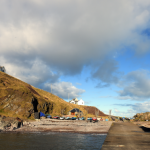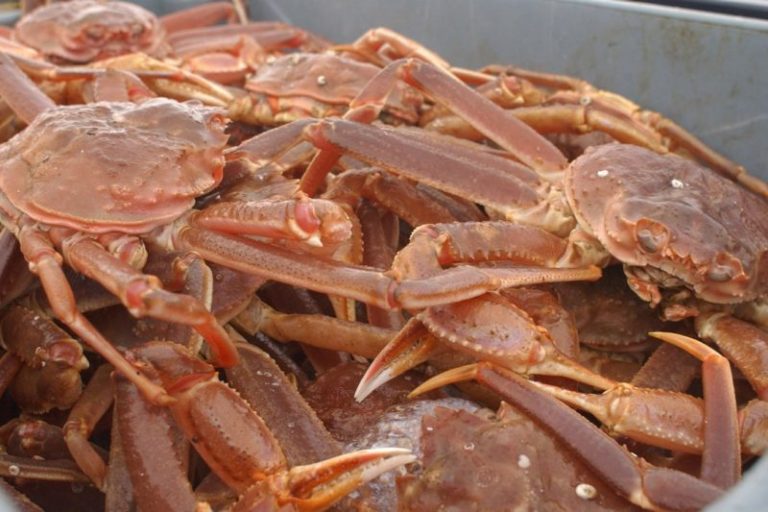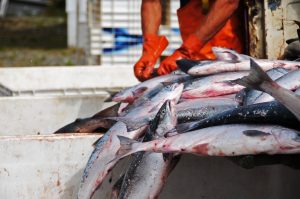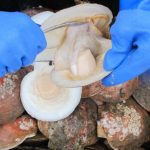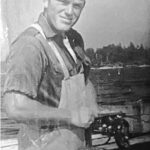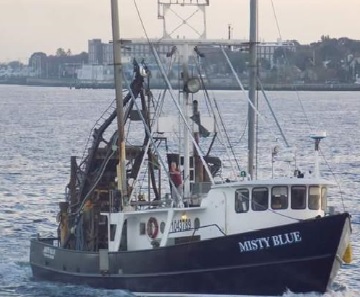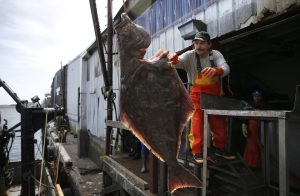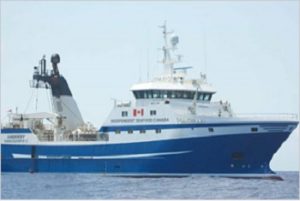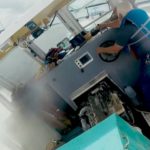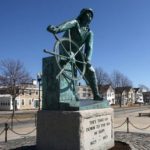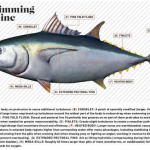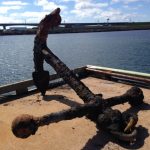Monthly Archives: June 2018
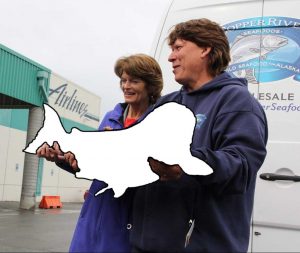
Copper River crash will cost commercial fishermen millions
Copper River sockeye fishermen are facing historic low returns this year, prompting some commercial fisherman to target other species elsewhere in Prince William Sound, and leaving others waiting onshore in what is usually a profitable fishery to the tune of $15 million or more in ex-vessel value. Through mid-June, the commercial Copper River District drift gillnet fishery had landed just less than 26,000 sockeye salmon and a little more than 7,000 kings during three mid-May fishing periods. The Alaska Department of Fish and Game had expected a harvest this summer of nearly 1 million sockeye in the district, and about 13,000 kings. As the harvest stands now, it’s the second-lowest in the past 50 years. >click to read<16:21
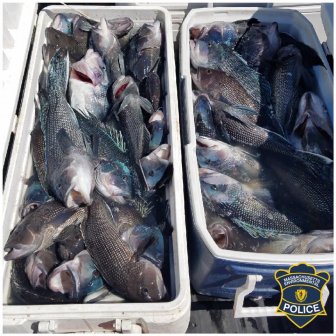
Massachusetts Environmental Police recreational vessel inspection nets criminal summonses
On Tuesday, June 19, 2018, a Massachusetts Environmental Police Officer conducted a fisheries inspection of a recreational vessel at the boat ramp in Sandwich. The inspection of the vessel yielded 300 pounds of jumbo black sea bass, 73 pounds of large black sea bass, one short black sea bass, and 7 pounds of scup. The vessel operator presented the Officer with a New Hampshire commercial fishing permit and indicated he believed he could fish commercially in Massachusetts with said permit. The operator and his passengers were each issued criminal summonses for fishing commercially in Massachusetts without a Massachusetts commercial permit and possession over the legal limit of black sea bass. 15:37
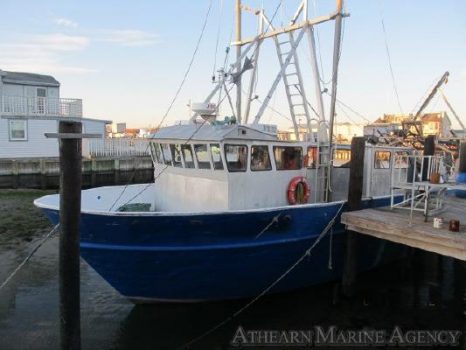
Athearn Marine Agency Boat of the Week: 48′ Aluminum Scalloper, (2) Detroit 871’s, 25 kW Genset, Federal permit available
Specifications, information and 5 photos >click here< To see all the boats in this series, >Click here<12:30
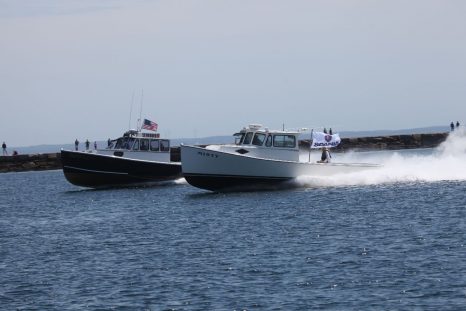
Boothbay Harbor kicked off lobster boat racing season Saturday, and in Rockland on Sunday
Maine’s summer lobster boat racing season opened last weekend with turnouts of nearly 50 boats both at Boothbay Harbor on Saturday and at Rockland on Sunday. Both races drew several new boats, including several from Downeast, and both events saw some impressive speed runs, though no records were broken. This year, race organizers established two classes for boats built primarily, or exclusively, to race rather than fish. >click to read<11:46

Fishermen Urge Regulators to Establish 50-Mile Buffer Zone for Herring Trawlers
Local fishermen and elected officials from across Cape Cod strongly urged fishery managers Tuesday to impose a strict 50 mile buffer zone for mid-water herring trawlers. At an overflow meeting in the Chatham Community Center, they said the vessels are wiping out the herring, negatively impacting the local fishing industry and related economies. The New England Fishery Management Council is considering changes in the rules that govern the trawlers and has been taking comments at various ports around New England. >click to read<11:05
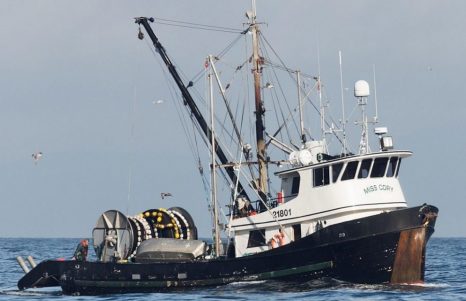
Investigation results released after fatal herring boat sinking
The chain of events that led to a fishing boat sinking off Cape Lazo have been released. Back on March 6, 2017, the Miss Cory had been fishing for herring in the Strait of Georgia after sailing out of Comox for the fishery opening that day. The fishing boat was 19.5 metres in length, and based out of Prince Rupert. It had sent out a distress call around 4:30 p.m. in the afternoon, at a location around five and a half kilometres out from Cape Lazo. At the time of the sinking, four crew members were rescued by a nearby vessel, the Proud Venture. One person was unaccounted for and declared missing. >click to read<08:41

Man sentenced in scheme to skim money from Maine seafood company
A former seafood dealer was sentenced Tuesday in U.S. District Court in Portland to six months in federal prison for wire fraud, according to the U.S. Attorney’s Office. Jonathan F. Cowles, 48, of Honolulu, Hawaii, and formerly of Rowley, Massachusetts, also was ordered to pay nearly $360,000 in restitution to his former employer, Maine Coast Shellfish, LLC, a lobster wholesaler in York. That is the amount of money the company lost when Cowles had Maine Coast Shellfish ship 50,000 pounds of lobster to a customer in China whose identity he concealed and who never paid for the lobsters, according to court documents. >click to read<08:16
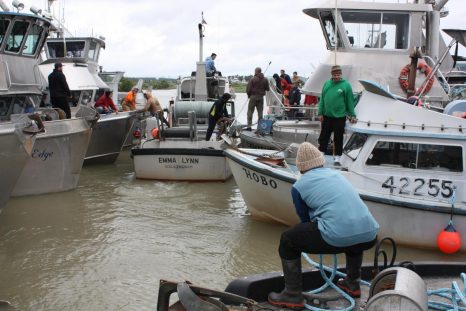
Drift fishermen hopeful for Wednesday’s Nushagak opener
Fishermen faced blustery bouts of rain Tuesday at Dillingham’s small boat harbor, but that’s not dampening their enthusiasm for Wednesday’s commercial drift net opener in the Nushagak and Igushik sections. Many drift boats plan to ride Tuesday night’s tide out into the bay for the first commercial drift gillnet opening from 8 a.m. to 1 p.m. Wednesday. “You saw it here – as soon as that announcement (went out at 9 a.m. Tuesday), there was boat after boat getting thrown in the water here. I would assume there’s going to be quite an interest in this opener,” said Logan Branstiter of the F/V B-Team. “(We’re going to) start looking around, looking for jumpers, looking for signs of fish and activity and hope you hope you set on them.” >click to read<07:26

A fisherman asks how to make disability insurance affordable
Q. I don’t have a lot of money left over after paying bills each month. I know I should buy disability insurance – I work in commercial fishing and my job gives me some short-term disability but I think I need more. How can I make the disability insurance more affordable without losing the benefits I could need? — Trying to do right. A. Good for you that you recognize the need to protect your most valuable asset – your ability to earn income. And if you think paying your bills is tough now, just imagine how much tougher it would be with no income. That’s why disability insurance is such a great investment. >click to read<18:39
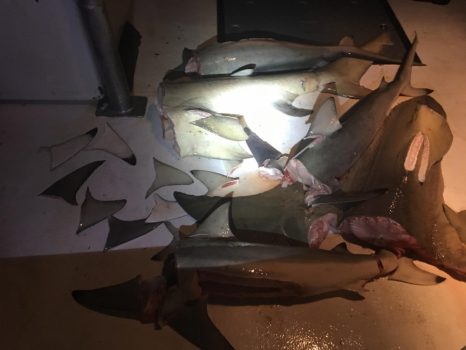
11 shark fins, dismembered sharks found aboard boat near South Sound Creek
The U.S. Coast Guard, National Oceanic and Atmospheric Administration and Florida Fish and Wildlife Conservation Commission personnel seized 11 shark fins and dismembered sharks Monday that were found aboard a 40-foot commercial fishing boat near South Sound Creek, Coast Guard officials announced Tuesday in a news release. Authorities said an FWC officer first spotted the boat, dubbed Miss Shell, off South Sound Creek because of its improper display of navigation lights. Authorities said they found 11 shark fins and dismembered sharks aboard the boat. The boat was then escorted to Port Largo. The catch was seized and handed over to NOAA officials Tuesday. >click to read<16:15
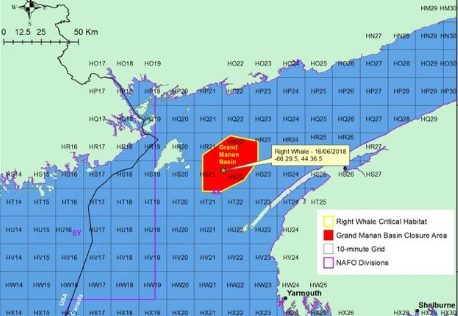
DFO orders fisheries closure in Bay of Fundy after right whale sighting
The federal government announced Monday evening the first temporary fisheries closure in the Bay of Fundy as a result of a North Atlantic right whale sighting. The area, just east of Grand Manan, will be closed to fixed-gear fishing activities starting at 11:59 p.m. Thursday, the Department of Fisheries and Oceans said in a statement. It said the closure, which affects lobster, crab, groundfish, herring and mackerel licenses, will remain in place until further notice. It’s believed to be the first closure of its kind ever in the bay, according to Laurence Cook, chairman of the Grand Manan Fishermen’s Association lobster advisory board. Cook was busy fielding calls and texts from “angry and upset” members after government informed the association around 6 p.m. Monday, he said. >click to read<11:42
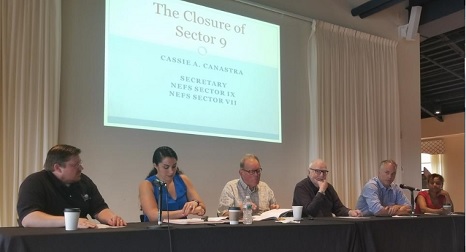
Held Hostage: New Bedford Fishermen, Businesses losing out while waiting on NOAA
“If something doesn’t happen with groundfishing soon, it’s gone,” general manager of Hercules SLR John Reardon said. NOAA implemented the ban Nov.20 and has continued because of an overage calculated at 72,000 pounds of grey soul, according to multiple people who spoke Monday evening. The overage represents the amount of fish calculated by NOAA that Carlos Rafael misreported. He is serving a 46-month prison sentence, but the NOAA punishment aspect has held many along the waterfront hostage. >click to read<10:27
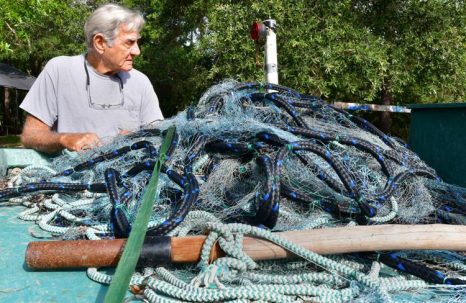
Conceived in a boat, born on the river: Mullet fishing is in Lonnie Head’s blood
At 79 and a fourth-generation Old Homosassa fisherman, Lonnie Head knows the waters of the canals and rivers and the gulf by heart. Still strong as an ox, he still goes out mullet fishing a few times a week in a boat he built himself, pulling in his nets full of fish like they’re weightless. Before the net ban in 1994 took away much of his and other commercial fishermen’s livelihood, Head fished nearly every day. “Fishing was all there was to do,” he said. “All Homosassa was was a fishing village … I started fishing with my daddy when I was 7 years old or younger. >click to read<09:01
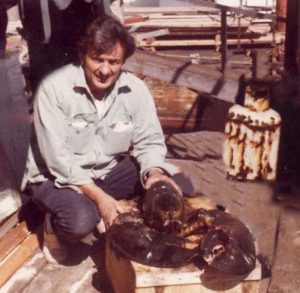
Fishermen of Newport to Honor Ronnie Fatulli this Thursday
On Thursday, June 21, 2018, the Newport Lobster Shack and Fishermen of Newport will honor Ronnie Fatulli for his lifelong commitment to the commercial fishing industry of Newport, his love of the working waterfront and his successful efforts to insure a permanent commercial pier in the City of Newport. Business owners, locals and tourists alike are invited to join in the celebration at State Pier #9 located at 150 Long Warf, Newport, RI. The ceremony will begin promptly at 11:00AM and will feature speeches by Mayor Harry Winthrop, Director of the DEM, Janet Coit, Bill Palumbo and Alan Eagles. >click to read<08:04

Coast Guard medevacs injured fisherman 13 miles west of Grays Harbor
The Coast Guard medically evacuated an injured fisherman 13 miles west of the Grays Harbor, Washington, entrance, Monday morning. A Coast Guard boat crew aboard a 47-foot Motor Life Boat from Station Grays Harbor met up with with the commercial fishing vessel Myrna Lynn to transfer the 50-year-old injured fisherman to shore, and get him treated by emergency medical services for a severe hand injury and shock. Watchstanders at Sector Columbia River received the injury report via VHF-FM radio at 8:15 a.m., and directed the launch of the boat crew. The patient transfer between the Myrna Lynn and the boat crew occurred at 9 a.m. >link< -USCG-
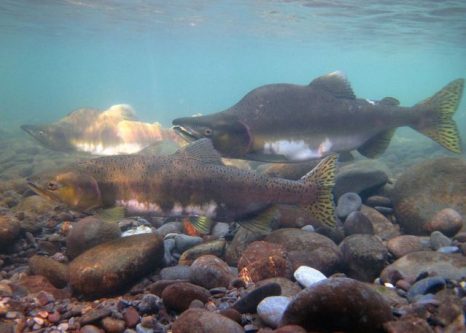
Humpy invasion
While West Coast Americans – Alaskans among them – worry and fret about farmed Atlantic salmon escaping to invade the Pacific Ocean despite decades of failed stocking efforts aimed at helping them do so, the Norwegians, Scots and other Europeans are facing a real and significant problem with an invasive Pacific salmon – the ubiquitous Alaska humpy. The smallest of the Pacific salmon, the humpy – or pink salmon – is by far the most common species in the 49th state. Of the 224.6 million salmon caught in Alaska last year, 63 percent, some 114.6 million, were pinks, according to the Alaska Department of Fish and Game. And Northern Europeans are now worried the highly adaptable and voracious humpy could become a common species in their coastal waters. Blame the Russians. >click to read<15:52
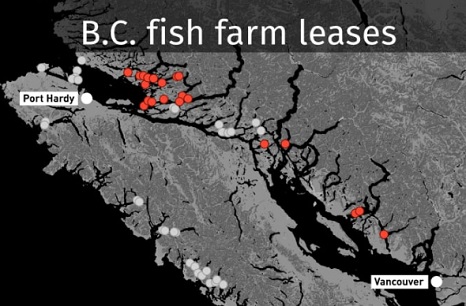
It’s wild salmon health vs. money and jobs as B.C.’s fish farm fight comes to a head
For some, salmon farms are a blight on the landscape. Not for the way they look, but because of the threat they believe these large aquaculture operations pose to wild salmon. “We’re pretty confident this place will have to be dismantled,” says Ernest Alfred, pointing at the farm from the boat. “And I’ll be here to watch it.” The government is currently reviewing the leases of 20 fish farms that expire on June 20. Alfred and other opponents are upping the pressure on the NDP leadership in hopes they will commit to ending fish farming in the ocean. But supporters of the farms say that would be a huge blow to an industry worth billions of dollars to the province. >click to read<12:01
Meanwhile, in Scotland, A bid by the Scottish Government to resolve fierce arguments over how fish farms harm wild salmon has been dismissed as a public relations stunt by campaigners. The population of wild salmon in Scotland has fallen by 50 per cent from around 1.25 million in the 1960s to 600,000 in 2016. Angling groups point out that most of the decline is on the west coast, close to where salmon farms are located. >click to read<
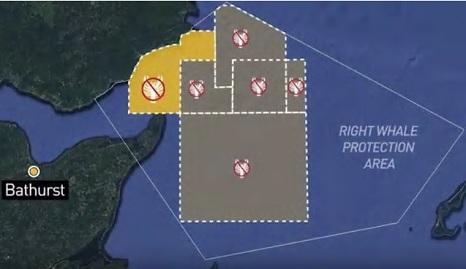
Lobster fishermen comply with federal order and move traps to smaller area
Lobster fishermen aboard about 60 boats spent Sunday morning pulling traps from waters off Miscou Island in northeastern New Brunswick in order to comply with a zone closure put in place by the Department of Fisheries and Oceans. The closures in Lobster Fishing Area 23 were announced by the DFO on June 11, after five North Atlantic right whales were seen between Miscou and the Gaspe Peninsula. DFO boats were in the area monitoring the situation as the traps were hauled up. “There’s a very small block that they can kind of move into. They are limited on the amount of territory that is left for them so they’re all going to have to cram into what’s left I guess.” >click to read<10:16
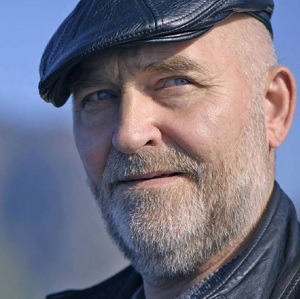
Norwegian fisherman speaks out about oil industry
Norwegian commercial fisherman Bjørnar Nicolaisen has spoken out about the negative impacts of the oil industry on his livelihood. The group Oil Free Seas – Australia has picked up on his appeal posting a video of Mr Nicolaisen on its Facebook page. Kangaroo Island based environmental campaigner Linda Irwin-Oak urged everyone to watch the video. “If you have any doubts at all about the company Statoil/Equinor drilling in the Great Australian Bight, then this will make your mind up 100 per cent,” Ms Irwin-Oak said. “Statoil is not to be trusted and this plea is from a man that has fought and won a battle against the oil giant on his home grounds.” >click to read<08:37
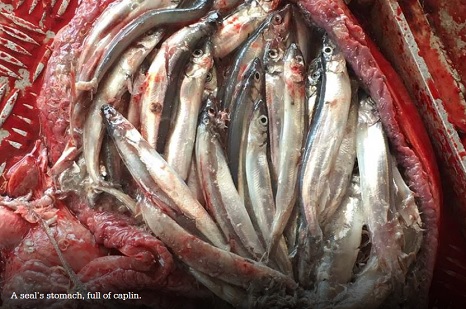
Exploding seal population must be addressed
They say a picture is worth a thousand words here are just a few pictures taken by some people who live near or are always on the ocean every day that suitable. They, like me, can read the ocean. Right now the ocean is crying out for help from the packs of seals that have invaded ever crook and cranny on the shores. They are starving to death and eating everything in their path, these Harp seals should be in the artic by now but instead they are surrounding large shoals of herring and caplin, the food for cod and food for all things in the ocean, and keeping them in shoal water until everyone of them are eaten.How long is the Department of Fisheries and Oceans going to let this go on without addressing this problem? >click to read<19:51
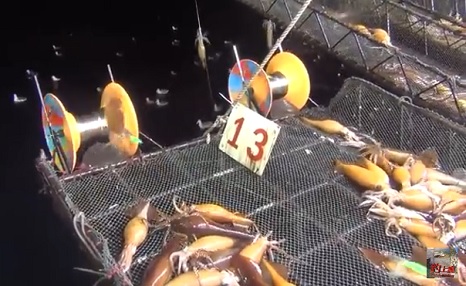
How China’s squid fishing programme is squeezing its neighbours and creating global sea change
Critics have said China keeps high-quality squid for domestic consumption, exports lower-quality products at higher prices, overwhelms vessels from other countries in major squid breeding grounds, and is in a position to influence international negotiations about conservation and distribution of global squid resources for its own interest. Fishing ships from China have accounted for 50 to 70 per cent of the squid caught in international waters in recent years, effectively controlling the supply of the popular seafood, according to an estimate by the Chinese government. A price hike for squid bought by the United States from China has been accompanied by a decline in quality, Video, >click to read<12:54
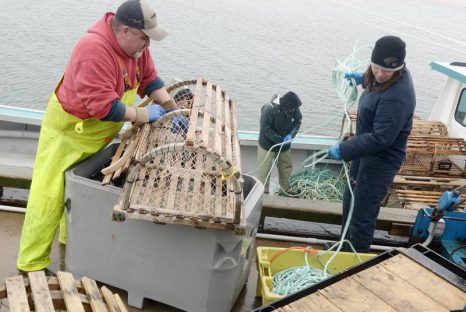
Canada’s most dangerous job
Last week’s tragic accident in the waters of Northumberland Strait, off Cape Bear, in Eastern Prince Edward Island, was a reminder of the little acknowledged fact that fishing is the most dangerous occupation in Canada. Two men were killed when a Cape Island fishing boat travelling under full power slammed into a similar boat that was stopped in the water. The Transportation Safety Board and other agencies are investigating the accident and are yet to rule on exactly what happened. Last October, after a month-long study, Toronto’s Globe and Mail newspaper did an extensive series on workplace fatalities, and it concluded that fishing is Canada’s deadliest occupation. >click to read<11:51
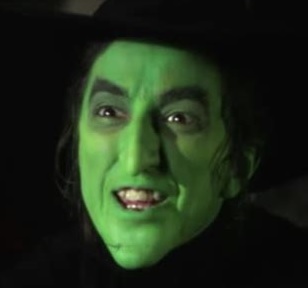
Misguided Opposition to Wind Farm? The rambling random notions of an unhinged crack pot.
As we face multiple global ecological crises, magnified by climate change, it is puzzling, even frightening, to see opposition to one of the major and already functioning forms of renewable energy, especially from the marine resources community. One would think that this community was completely ignorant of the proven threats of oil tankers to our fisheries and estuaries, or of the overfishing of food fish, or the destruction of coastal estuaries, the fish breeding grounds, for condominiums, hotels, resorts and other incompatible uses, or the polluting runoff from farms, sewers, cesspools and industry. The commercial fishing community has long sat on the sidelines as environmentalists fought the good fight to preserve ocean life.,, >click to read<10:19
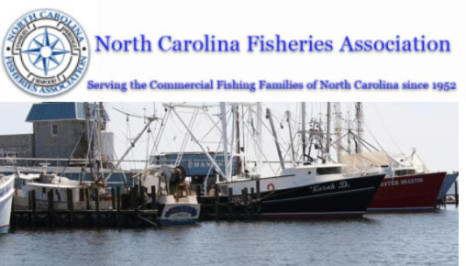
North Carolina Fisheries Association Weekly Update for June 15, 2018
>Click here to read the Weekly Update<, to read all the updates >Click here<, for older updates listed as NCFA <click here>08:21
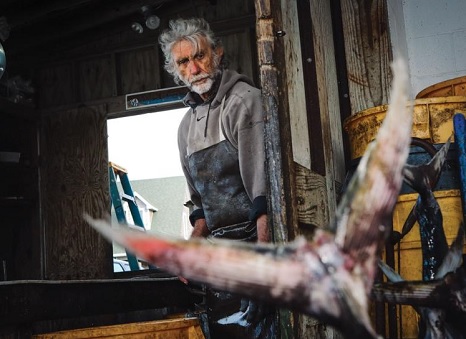
To Jim Lyons fish smell like money
His brown rubber apron is covered with a healthy coat of slime, scales and blood. His gloves too. The whole place stinks of dead fish. But any notion of that being a bad thing is lost on Jim Lyons. “Fish smell like money,” he says, laughing. Lyons cleans fish at Hatteras Harbor Marina. Any self-respecting fishing community has someone like him. Fish cleaners typically work afternoons, when the fleet arrives with the day’s catch.,, While some things change, others remain constant. “Sharp knives are a must,” he says. >click to read<19:23

New DFO orders ‘hard pill to swallow’ for N.B. lobster fishermen
Lobster fishermen off the coast of Miscou Island, N.B., will spend Sunday morning hauling gear from the waters in order to comply with the latest fishing zone closures imposed by the Department of Fisheries and Oceans. On Friday afternoon, the DFO re-opened four areas previously closed to fishing due to the presence of right whales. But with more closures being imposed on Sunday, frustrations continue to mount. Carl Allen, president of the Maritime Fishermen’s Union, organized the most recent protest and met with LeBlanc on Friday.,,”I have a lot of respect for Minister LeBlanc, but we just don’t agree with the basis of the whole plan — it’s a hard pill to swallow,” he said.,, LeBlanc did offer the fishermen an alternative, however. He offered a paid training program for crew members and plant workers affected by these closures. >click to read<18:20
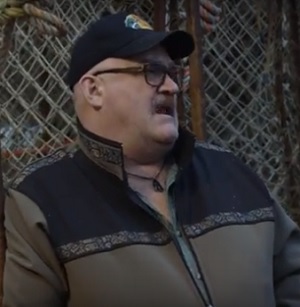
Deadliest Catch’ – Keith Colburn Sitting This Season out Because His Back “Is All F–ked Up”
It’s not his dangerous job that has taken Captain Keith Colburn out of commission — it’s a nasty infection. So what happened to Keith on Deadliest Catch, exactly? As Keith revealed in the June 5 episode of the reality show’s 14th season, he has osteomyelitis — a severe bacterial infection — in his spine. “My back is all f–ked up,” he told his crew. He also said his vertebrae look like they’ve been doused in battery acid. According to the Mayo Clinic, infections can reach the bone through the bloodstream or from nearby tissue. Osteomyelitis was once considered incurable, but these days it can be successfully treated with surgery and intravenous antibiotics. >click to read<17:11
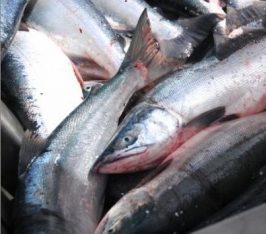
Unexpected bounty
Good news at last for salmon-loving Alaskans who’ve watched sockeye returns to the fabled Copper River spurt and falter this year. No, the Copper hasn’t witnessed the miraculous return of tens of thousands of overdue fish, but there are now indications that the disastrously weak run there might be limited to the wild, 26,000-square mile watershed near the Canadian border. An unexpected bounty of sockeye has shown up at Bear Lake on the Kenai Peninsula and the early return of sockeye to the Kenai’s Russian River looks to be tracking the 2017 return, albeit it a week late.,,, Commercial fishermen had harvested 125,000 Bear Lake sockeye through Thursday – about seven times as many as through the same date last year, according to Fish and Game. >click to read<12:34
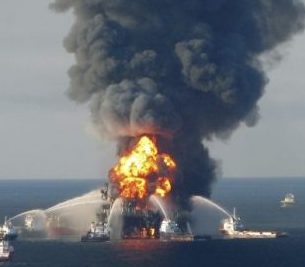
Looking for contacts in America of fishermen or fisherwomen who were affected by the Gulf of Mexico spill and it’s aftermath
G’day to my American Brothers from the land Down Under. I’m currently looking for contacts in America of fishermen or fisherwomen who were affected by the Gulf of Mexico spill and it’s aftermath. What I’m looking for is people willing to provide first hand accounts about the impact the spill had on your businesses, your fishery, The environment, Local communities and Local Economies. The reason I ask is because I am planning to lodge a stakeholder submission to our local Council here in Port Lincoln, South Australia. Norwegian based Statoil/Equinor are pressing ahead to deep water drill for oil in the Great Australian Bight,,, Fisherman Scott Jansons >click to read<11:14

































